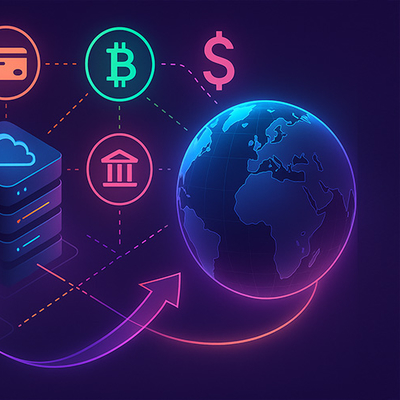Blockchain Testing: Identify Problematic Casino Transfers
With the development of Web3 entertainment, businessmen face new tasks, particularly in the area of financial control and adherence to the laws.
Distributed ledger enables entrepreneurs to track the actions of users while maintaining their anonymity. This leads to difficulties in monitoring money laundering schemes or connections with suspicious profiles.
It is important to enhance the clarity of money transfers, minimise threats associated with unwanted clients, and comply with AML standards.

Smart Money specialists will describe the modern vision and aspects that need to be considered when studying links between players and questionable transactions. We will tell you about specialised tools and online monitoring techniques.
About the Concept
It is a set of approaches, solutions, and processes used to review operations in a public cryptocurrency ledger. Its main purpose is to find connections between wallets, detect unusual behaviour, and assess risks related to the movement of funds or specific customers.
The process of studying transactions in virtual assets is based on data from blockchains such as BTC, ETH, or TRX. The analysis allows clients to detect fraud and suspicious activity.
In the context of gambling, it helps operators to:
- use AML tools;
- identify bonus hunting;
- uphold the law;
- assess risks before working with users.
Regulatory Pressure and New Expectations
Many jurisdictions require the use of the described tools. This is about not only standard KYC procedures but also a deeper investigation of transactions.
Today, the authorities expect entrepreneurs to take a meaningful rather than formal approach to such checks, in particular:
- analysis of the provenance of crypto assets;
- identification of transfers related to sanctioned wallets;
- blocking high-risk operations.
Here are some examples of stricter laws in various jurisdictions:
- European Union. The 5AMLD requires mandatory KYC and activity monitoring. The MiCA document came into force in December 2024 and complements these requirements.
- USA. The FinCEN bureau of the Department of the Treasury requires reporting suspicious behaviour, and the OFAC prohibits interaction with wallets included in sanctions lists.
- Great Britain. The Financial Conduct Authority (FCA) requires the use of KYT (Know Your Transaction) tools and risk management systems.
- Estonia. From 2022, all licensed companies in the crypto niche must implement such analytics as part of AML control.
Popular Providers of Technological Solutions
The market offers several effective products used by operators:
- Chainalysis. One of the most well-known solutions for AML and real-time monitoring. It is widely used in both the private and public sectors.
- Elliptic. The platform offers tools for assessing compliance, including the detection of fraudulent or darknet transfers.
- Crystal Blockchain (Bitfury). The system supports deep visualisation and is aimed at financial or government organisations.
- TRM Labs. The service applies ML to model the behaviour and identify anomalies in the dynamics of operations.
Typical Scenarios for Using Blockchain Analytics

Online casinos that accept transfers in virtual coins face increased regulatory and monetary risks. In such conditions, basic customer checks (KYC) are not enough. The tool opens up new opportunities for an effective study of players’ actions.
Connection Between Illicit and Sanctioned Addresses
Casino visitors may transfer funds to accounts and profiles that are already listed in databases as those associated with illegal activity. These include:
- scam sites or phishing projects;
- illegal darknet portals;
- addresses with a history of fraud or exploitation of smart contract vulnerabilities;
- entities included in the sanctions lists of international organisations, etc.
Thanks to the integration with modern tools, entrepreneurs can identify risky links even before the transaction is processed. This helps prevent fraud and avoid compliance issues.
Analysis of Transactional Models and Coordination
Automated transfer schemes designed to bypass limits or distribute funds may indicate fraudulent attempts. Assessment instruments make it possible to:
- identify recurring transactions with the same amounts and intervals;
- track the regularity of exchange between wallets;
- detect unusual player behaviour, such as high activity at night or frequent transfers after long pauses.
Such actions may indicate coordinated actions, the use of bots, attempts to abuse bonuses, or hidden multi-accounting.
Identification of Multiple Accounts Created by One User
The same gambler can create various profiles to bypass time limits, regain welcome rewards, or commit fraudulent cashouts. Thanks to blockchain analytics, it is possible to:
- identify common wallets used for transactions in different accounts;
- track interactions through third parties when funds pass through “buffer” addresses;
- detect behavioural patterns that indicate centralised management of multiple profiles.
Data analysis allows casino owners to see the real picture even in cases where a person changes wallets or tries to disguise their connection.
Online Monitoring of Abnormal Activity
Thanks to the application of KYT class tools, operators have an opportunity to track suspicious actions as they occur. Modern technologies allow businessmen to:
- receive notifications about unusually large transfers from new or previously inactive wallets;
- detect the use of mixers, DeFi protocols, or obfuscation services;
- promptly respond to attempts to bypass verification systems or restrictions.
This is especially important for platforms that provide services in regulated jurisdictions and demonstrate a proactive view on the prevention of risks.
Transactional Analysis as a Regulatory Requirement
Supervisory authorities expect entrepreneurs to conduct a comprehensive study of cryptocurrency transfers. This includes:
- verification of sources of crypto assets;
- detection of transactions from sanctioned addresses;
- automatic blocking of risky operations.
Platforms that implement such solutions increase trust from partners and demonstrate a willingness to work transparently even in a complex environment.
Identification of Problematic Transactions: Practical Cases
Modern casino owners cannot rely only on superficial financial monitoring, especially when it comes to cryptocurrencies. Analytics based on distributed ledger allows for in-depth research of transfers, building up a complete picture of cash flows and responding to problems in a timely manner.
Risk Analysis of Addresses for Performing a Transaction
Leading platforms allow entrepreneurs to evaluate a crypto profile even before the operation is completed. This is essential for preventing financial violations. Thanks to the use of modern systems, businessmen can:
- identify addresses that have previously interacted with darknet platforms or services with a doubtful reputation;
- explore links to accounts that are included in sanctions lists (OFAC, Interpol, etc.);
- automatically assign a Risk Score, which can be used to set a delay, block a transaction entirely, or perform flagging (designation of an event as potentially suspicious).
Visualisation of Transfer Chains and Detection of Complex Patterns
Special graphical tools allow operators to:
- track the path of funds even through dozens of intermediary wallets;
- identify attempts to split large amounts to avoid control (structuring);
- find “nodes” — wallets or exchanges through which a large volume of questionable transfers passes.
This approach helps not only to respond to incidents but also to uncover long-term fraudulent schemes.
Formation of a Player’s Transaction Profile
Through analytics, it is possible to create dynamic user accounts. Several parameters are assessed:
- average deposit and cashout volumes;
- frequency and regularity of transfers;
- the degree of use of anonymisers or P2P exchangers;
- geographical characteristics of traffic.
Based on this data, it is possible to set an individual risk level and adjust verification rules, from additional KYC to the limitation of the account’s functionality.
Fraud Detection through DeFi, DEX, and NFT
Scammers are increasingly using such tools to obfuscate the signs of money. Typical scenarios include:
- instant exchange of assets on DEX after receiving a deposit;
- transfer of funds to non-fungible tokens to complicate tracing;
- use of cross-chain bridges to break the transaction chain.
Analytical systems track these interactions, even if the contracts were created recently or have an atypical structure.
Integration with Internal AML Tools and Compliance Modules
Maximum efficiency is achieved when blockchain studies work in tandem with the operator's internal services. For example, the name of the account is automatically matched with the cluster of addresses belonging to it.
Another option is to generate a report to use in an internal investigation or records sent to the regulator (SAR). The data obtained during the analysis enriches CRM profiles and is also applied in responsible gambling modules.
This provides a holistic view of the client and allows businessmen to make decisions taking into account not only formal features, but also real risks.
Connecting the Tool: Step-By-Step Instructions

The integration of solutions for analysing transactions based on distributed ledger into the internal processes of an iGaming business is not only a technical step but also an element of a strategy for reducing risks, complying with legal requirements, and increasing trust in the brand.
Key stages of implementing modern tools include:
Choice of a Supplier of Analytical Solutions
Among the most well-known providers are Scorechain, Crystal Blockchain, Elliptic, and others.
To select the optimal vendor, it is recommended to consider the following parameters:
- support for the necessary networks (for example, Bitcoin, Ethereum, Tron, or Solana);
- availability of software interfaces for interaction with backend systems;
- the degree of detail in the classification of addresses (such as the risk level, history of interactions, and sources of funds);
- functionality for real-time analysis (KYT);
- adherence to the laws in the jurisdictions where the companies work.
Integration with Internal Systems
Once the platform has been selected, it is necessary to implement a technical connection with the internal modules, including:
- payment infrastructure (to verify addresses before or after processing a transaction);
- risk management tools (to create an activity profile of a player);
- CRM systems or identity verification modules (to combine user details with data on blockchain operations);
- analytical dashboards for viewing the results of assessing and building transactional schemes.
Most suppliers provide the possibility of integration via API or SDK, which allows for a quick connection to the main platforms.
Definition of the Logic of Automated Processing
At the initial stage of implementation, it is important to define the rules for responding to money transfers depending on the risk level, in particular:
- for a low level — automatic handling without delays;
- for a medium level — marking the transaction for further analysis;
- for a high level — suspension or cancellation of execution.
Additionally, casino owners can set up specific response scenarios for certain patterns, such as the detection of obfuscation, interaction with known high-risk addresses, etc.
The Main Things About Special Analytics in iGaming
Studies based on distributed ledger open up new opportunities for entrepreneurs.
Key aspects that need be considered:
- Deep verification of cryptocurrency transactions. Modern tools help quickly identify suspicious activity online and respond to problems in a timely manner.
- Tracking customer actions. Systems analyse not only transfers but also user behaviour. They also identify multiple accounts, as well as connections between wallets and fraudulent addresses.
- Adherence to the laws. Supervisory authorities are tightening restrictions for providing transaction security and combating money laundering. The integration of such analytics makes businessmen and their clients adhere to the new rules.
This article was prepared by Smart Money experts with vast experience in implementing gambling projects. We will help you open a legal entity, obtain licences, and enter the selected market.
From us, it is also possible to order the following useful services:
- turnkey casino development;
- creation of crypto platforms;
- development of modern content;
- payment software connection;
- installation of security systems, etc.
Check the information used to contact us carefully. It is necessary for your safety.
Fraudsters can use contacts that look like ours to scam customers. Therefore, we ask you to enter only the addresses that are indicated on our official website.
Be careful! Our team is not responsible for the activities of persons using similar contact details.


 Alderney
Alderney  Anjouan
Anjouan  Australia
Australia  Austria
Austria  Belgium
Belgium  Belize
Belize  Costa Rica
Costa Rica  Curacao
Curacao  Dominican Republic
Dominican Republic  Estonia
Estonia  Georgia
Georgia  Gibraltar
Gibraltar  Isle of Man
Isle of Man  Italy
Italy  Kahnawake
Kahnawake  Malta
Malta  Ukraine
Ukraine 











